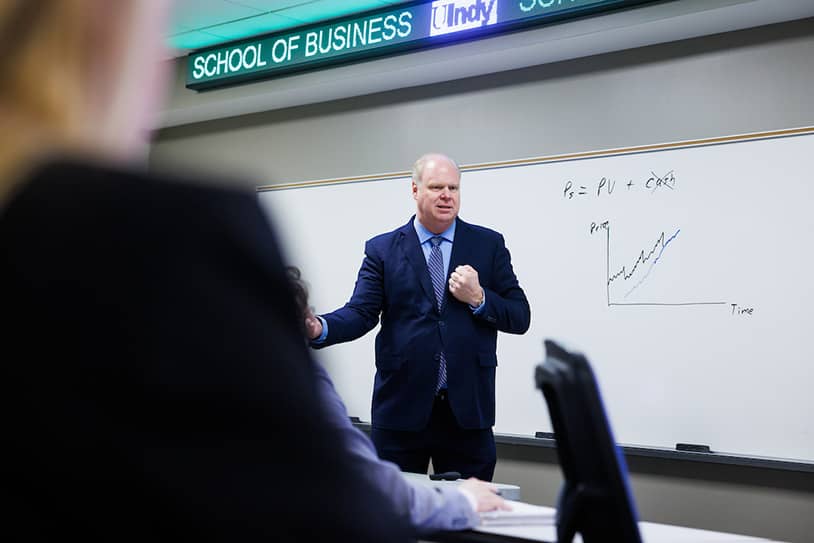What is the Difference Between MBA and MS?
In the realm of advanced education, two prominent master’s degrees stand out: the Master of Business Administration (MBA) and the Master of Science (MS). While both signify a commitment to higher learning and can significantly enhance career prospects, there are a few key differences. These degrees diverge in their focus, target audience, and ultimate career paths. Understanding the differences between an MBA and an MS is crucial for individuals who want to make decisions aligning with their professional goals.
Master of Business Administration (MBA):
The MBA, or Master of Business Administration, is a versatile and widely recognized degree that provides a comprehensive understanding of various facets of business and management. The core curriculum of MBA programs encompasses subjects like finance, marketing, human resources, operations, and strategy. This broad and diverse approach is aimed at equipping students with the knowledge and skills needed to navigate the complex world of business.
One of the distinctive features of an MBA is the emphasis on real-world applications. MBA programs often incorporate case studies, group projects, and experiential learning opportunities, allowing students to develop practical problem-solving skills. This pragmatic approach prepares individuals for leadership and decision-making roles in a corporate environment.
Who should pursue an MBA?
MBA programs typically attract professionals with some work experience. Many students pursue an MBA after gaining a few years of practical exposure in their respective fields. This work experience is often considered valuable, as it allows for the application of theoretical knowledge to real-world scenarios discussed in the classroom.
Some students pursue an MBA immediately after obtaining their Bachelor’s Degree. “The job market is extremely competitive,” advises Kirk Bryans, Director of Business Careers for the Professional Edge Center at the University of Indianapolis. “Graduates of UIndy’s MBA program have elevated their skillset to stand out to employers.”
What can you do with an MBA?
Upon completion of an MBA, graduates often find themselves well suited for executive and managerial positions across diverse industries. The degree is highly regarded for fostering skills such as strategic thinking, effective communication, and leadership. Many successful CEOs and business leaders hold an MBA, attesting to its reputation as a pathway to top-level management roles.
Master of Science (MS):
In contrast to the broad and multidisciplinary nature of an MBA, the Master of Science (MS) is a more specialized degree. MS programs delve deeply into specific technical or scientific disciplines. Popular MS programs are computer science, engineering, data science, biology, or other specialized fields. MS programs provide an in-depth understanding of a particular area of expertise.
Who should pursue an MS?
Typically, MS programs attract individuals with a strong inclination toward a specific field. Whether recent graduates seeking advanced knowledge or professionals looking to specialize in a particular domain, MS programs cater to those who desire a focused and rigorous academic experience. The coursework in an MS program is tailored to the intricacies of the chosen field, ensuring that graduates possess specialized skills and expertise.
What can you do with an MS?
The career trajectory for MS graduates typically involves roles that require a high level of technical proficiency. Opportunities in research and development, technology, and engineering beckon those with an MS degree. Employers value the specialized knowledge and hands-on experience gained during an MS program. MS graduates make attractive candidates for positions that demand a deep understanding of specific subjects.
Choosing Between MBA and MS:
The decision to pursue an MBA or an MS hinges on various factors, including career goals, personal interests, and the level of specialization sought. Individuals aspiring to climb the corporate ladder, assume leadership positions, or engage in strategic decision-making may find an MBA to be the ideal choice. The broad skill set developed during an MBA program is transferable across industries, providing a versatile foundation for a managerial career.
On the other hand, those passionate about a specific field of study and eager to contribute to advancements in technology, science, or research may opt for an MS. The specialized knowledge acquired during an MS program opens doors to roles that demand a deep understanding of specific subject matter, making MS graduates instrumental in driving innovation and progress within their chosen domains.
“There is a specialization ‘middle-ground’ between the MBA and MS,” says Dr. Daniel Hall, Dean of the Phillips School of Business that offers the Online MBA Programs at High Point University. “MBA programs can offer concentrations in fast growing fields like Healthcare Management, Supply Chain Management, and Business Analytics. An MBA with a concentration positions early-to-mid career professionals as the ‘middle-men’ adding translation and decision-making support between specialists and the top executives working in these areas.”
Conclusion
In the dynamic landscape of higher education, the choice between pursuing an MBA or an MS can shape one’s professional journey. While an MBA offers a holistic understanding of business and management, an MS provides a specialized focus on a particular technical or scientific discipline. Thus, Both degrees carry their unique merits, and the decision ultimately rests on individual aspirations, career goals, and the desire for a broad or specialized skill set.
As individuals navigate the complexities of choosing between an MBA and an MS, thoughtful consideration of their professional objectives will undoubtedly guide them toward the path that aligns with their ambitions and sets the stage for a fulfilling and successful career.





